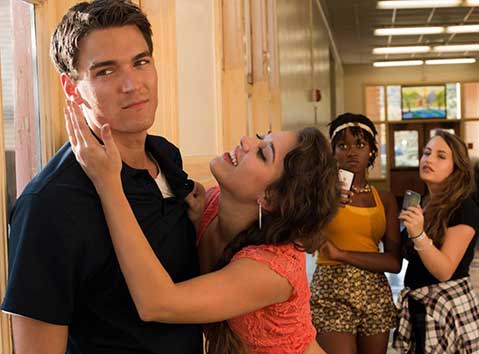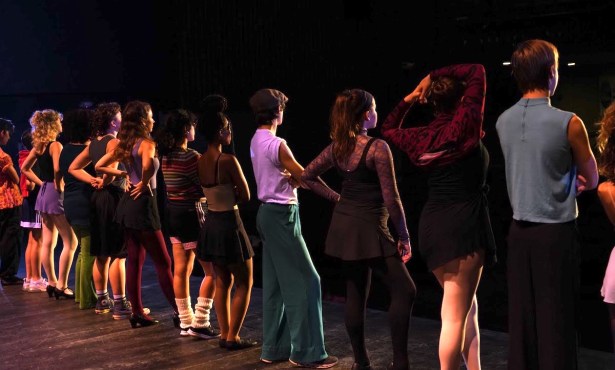‘Good Kids’ Shows at SBCC
Student Production Tackles Campus Rape

Good Kids is an example of the theatrical medium being used to present a dark, unsettling exhibition of a disturbing societal malady. An SBCC Student Showcase production, Good Kids, Naomi Iizuka’s play about sexual violence perpetrated against woman too intoxicated to grant consent, examines the intricacies and horrors of rape and the associated (often very public) consequences of the crime. The play is inspired by the frequent occurrence of like crimes committed in the United States, and most directly linked with the infamous sexual assaults committed in Steubenville, Ohio. Good Kids demonstrates the prevalence of sexual violence in the party atmosphere, and the associated shame and trauma the victims face as the crimes against them become the source of public interest, discussion, and gossip.
In the play, main character Chloe does not remember the events after last Saturday night’s party, which leads to fear and accusations. The news of the event spreads at a high rate of efficiency thanks to the widespread use of social media. Everyone at Chloe’s high school is talking about it, but Chloe is confused: Did she allow the sexual acts that were performed? Was she too intoxicated for her consent to be considered viable? Is this event considered a very straightforward rape? In the age of instant information available via technology, it’s impossible to suppress such an incident, making Chloe’s plight public and difficult to navigate.
Writer and UC San Diego professor Iizuka was commissioned to write Good Kids by the Big Ten Theatre Consortium in a specific effort to create more strong roles for female performers (especially college-aged actresses). Iizuki has been awarded the PEN/Laura Pels Award and the Whiting Writers Award. Her play forces this important, dangerous, and often convoluted issue to the forefront of the audiences’ minds by posing questions that demand more than an easy answer. “If we take it as a starting point that college campuses are not filled with sociopathic predators,” Iizuka said, “what is it that creates a situation where this happens?” The play also questions the damaging societal notion that women should be in charge of avoiding rape rather than men being held accountable for their actions, which puts the blame on the victim rather than the attacker. “There’s traditionally been such uneven, inappropriate responsibility placed on young women to not dress in a certain way or to limit their alcoholic intake,” said Iizuka. “It’s very destructive.”
Good Kids brings up provocative points and topics regarding the frighteningly frequent sexual abuse that occurs on college and high school campuses across the U.S. “There’s an enormous energy around the issue of sexual assault on campus,” said Iizuke. “You don’t solve a problem like sexual assault with anything other than a deep shift in attitude, and a deep shift in attitude happens conversation by conversation, in dorm rooms, parties, and rehearsal halls.” Good Kids brings awareness of this epidemic, and allows the audience to consider the after-effects of sexual violence, especially in situations where consent is ambiguous.
4.1.1
Good Kids runs Thursday-Sunday, November 12-15, and Wednesday-Saturday, November 18- 21, at SBCC’s Jurkowitz Theatre, 721 Cliff Drive. For tickets and information, call (805) 965-5935 or see theatregroupsbcc.com.



